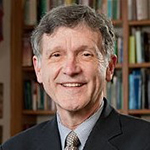By Bill Leonard
 In a syndicated column written after the Charlie Hebdo assassinations in Paris, commentator Cal Thomas wrote: “This is the difference between radical Islam and other faiths. Jews and Christians have been targets of persecution, but with rare exceptions in modern times those faiths do not encourage, or tolerate, murder in the name of God.” He noted that, “The West’s ‘reach out’ strategy has failed to modernize the anti-modernists, not only in France, but in Germany and England where enclaves of radical Muslims live according to their own laws in ‘no go’ zones.” (Fox News recently issued an apology for falsely claiming that “no go” zones existed throughout Europe.)
In a syndicated column written after the Charlie Hebdo assassinations in Paris, commentator Cal Thomas wrote: “This is the difference between radical Islam and other faiths. Jews and Christians have been targets of persecution, but with rare exceptions in modern times those faiths do not encourage, or tolerate, murder in the name of God.” He noted that, “The West’s ‘reach out’ strategy has failed to modernize the anti-modernists, not only in France, but in Germany and England where enclaves of radical Muslims live according to their own laws in ‘no go’ zones.” (Fox News recently issued an apology for falsely claiming that “no go” zones existed throughout Europe.)
In responding to the Duke University approval (quickly rescinded) of a Friday Muslim call to prayer from the tower of iconic Duke Chapel, evangelist Franklin Graham asserted of Islam and its deity: “This is not a God of peace. It’s just not. There’s no history of Islam being a peaceful religion.” He further avowed that “followers of Islam are raping, butchering and beheading anyone who doesn’t submit to their Sharia Islamic Law. Duke is promoting this in the name of religious pluralism.”
There is no doubt that radical-militant-terrorist Islam represents a global threat to life and liberty that some are calling a new Thirty Years War. It demands serious challenge and critique inside and outside the Muslim world. In a recent New York Times column, Thomas Friedman does just that, critiquing what he sees as the Obama administration’s hesitancy to identify the Charlie Hebdo/Kosher Market murders with “radical Islam,” and tracing various sources — poverty, bad governments, economics, terrorism — contributing to such violent, religion-attributed actions. Friedman concludes that the struggle “within Arab and Pakistani Sunni Islam” is “over whether and how to embrace modernity, pluralism and women’s rights,” issues less apparent “in the two giant Muslim communities in Indonesia or India.”
When Muslim individuals act in murderous and inhuman ways with global consequences, and claim the mandates of their religion, then that religion is clearly open to scrutiny and critique. Yet when we Christians enter that dialogue and denounce not just radical Islam but Islam itself, we would do well to predicate our comments on the tribalism and violence inherent in Christian history, even in “modern times,” when brutal “exceptions” were far from “rare.” Upon reading Cal Thomas’ shortsighted assumptions I recalled Charles Marsh’s daunting work, God’s Long Summer, an account of civil rights struggles in Mississippi in the 1960s.
Marsh tells of the night in 1967 when the KKK bombed the home of Jackson Rabbi Perry Nussbaum only weeks after perpetrating a similar bombing of his synagogue, Temple Beth Israel. Perry and his wife, Arene, escaped death only because they were asleep in the back bedroom. On that night, when the rabbi’s friend Doug Hudgins, pastor of Jackson’s First Baptist Church, arrived at the site, Nussbaum could not control his anger, declaring: “Doug, if you’re really sorry about this, get on the pulpit Sunday and tell your people this is wrong. Talk to those segregationists that fill up your church.” The Rabbi then turned to the more liberal Reverend Ken Dean, director of the Mississippi Council on Human Relations, and shouted: “You’re a white Christian — a Baptist, the worst kind for Jews. You’ve got a responsibility for what happened too. It’s the Sunday school lessons from the New Testament in Baptist churches that lead people to commit such terrible acts.”
Shouldn’t Graham, Thomas and the rest of us remember that the Ku Klux Klan was a Christianity-avowing terrorist group in the United States, extreme evidence of a larger Christianity struggling “over whether and how to embrace modernity, pluralism and women’s rights,” not to mention racial equity? Before we Christians can get to Paris and Baghdad, we’ve got to go through Jackson.
And before we condemn another religion for its misuse of sacred texts, or claim that “our” people seldom if ever “encourage, or tolerate, murder in the name of God,” let’s fess up to the fetid underbelly of American Christianity with its biblical proof-texts undergirding innumerable acts of Christianity-affirming violence, like the hanging of Quaker preacher Mary Dyer by Boston Puritans in 1660 (Luke 17:2); the exploitation of Native Peoples and their lands (Psalm 2:8); chattel slavery (Col. 3:22) and centuries of anti-Semitism (John 18:14). Then there’s the Baptist preacher who said if Barak Obama “does not turn his life around I am asking God to enforce in imprecatory prayers throughout the Scripture that would cause him death.”
Islam as a global religion has long proven that it is and can be a religion of peace. But right now it is in disarray, torn by tribalism and factionalism regionally, theologically, politically and ethically. Since significant elements of that disorder impact innocent Muslims and non-Muslims across the world, we have every right to question its actions and intentions, hoping that somehow we can pursue God’s peace together.
But before we critique “them” let’s confess that many have used “our” religion for violent ends, while others of us kept silent. Whether we pray toward Mecca or Golgotha, there are “beams” in all our eyes (Luke 6:42).
